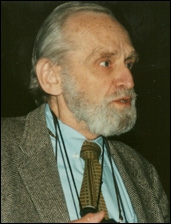Herman Alfred Tyroler
Year: September 5th, 2001
Location: Chapel Hill, North Carolina
Interviewed by: Labarthe, Darwin
Abstract
Dr. Tyroler is a physician who has worked in the field of CVD research since the early 1950’s. He describes the birth of CVD epidemiology at the University of North Carolina-Chapel Hill School of Public Health, starting with his collaboration with John Cassel and Bernie Greenberg on a study of 4,000 residents in western North Carolina. In western North Carolina, Tyroler worked with Logan Robertson to design mobile units, the first of their kind, to conduct these examinations, providing the model for the later National Health Surveys. This was followed by his work on the Evans County Heart Study and the Charleston Heart Study in which epidemiologic methods and skills were developed. He then discusses the methodological advances that resulted from these early epidemiologic studies and the impact they have had on the period of mass preventive trials and on current scientific thought and practice. Tyroler ends the interview by commenting on the future of CVD epidemiology and his hopes for greater emphasis on community or population health rather than on individuals. (Karen Ross)
Quotes
The Evans County Study
It was designed rigorously for that time… I was exposed to designing the study, stating the questions in advance. I regret to say we didn’t do as much quality control as one would today, I don’t think anybody did at the time. But perhaps with that one exception, the rudiments of a rigorous proper epidemiologic investigation were laid out. And the excitement of being involved in this from the moment of its inception carried through for 20 to 30 years was just glorious, really. (6)
So I always wanted, in my pipe dreams, to have enough money and status and talent to combine those and do a proper large-scale randomized trials of what I think are the proper units of epidemiologic study, not individuals, but communities. We do have community interventions with Ns of 5 for obvious reasons, which are cumbersome, expensive, time-consuming. But when you think of the economic impact of these diseases we’re talking about…somebody should push eventually for proper large-scale population units of randomized trials. (10)
Nobody any longer who looks at any of the data doubts the importance of the social environment on the distribution of disease in populations. (12)
Full Transcript Access
Full transcripts of interviews may be made available to those engaged with original materials for scholarly studies by contacting us.
